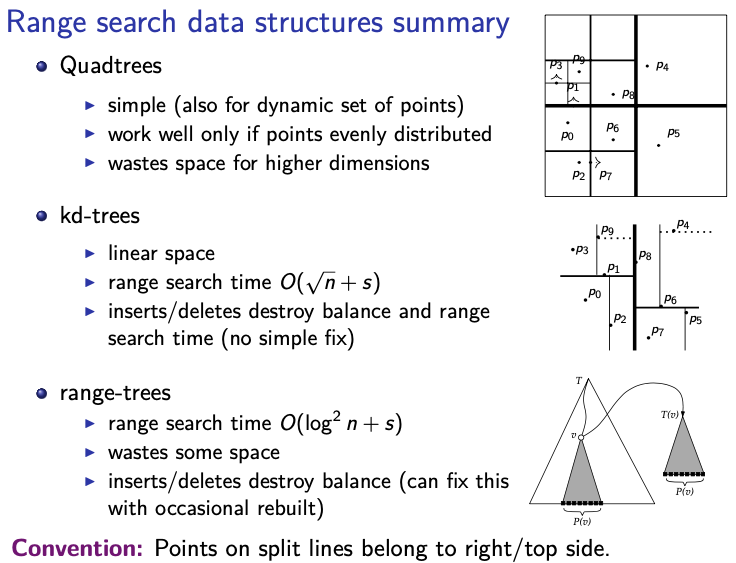Range Searching
So far, we have looks for one specific item.
New operation : look for all items that fall within a given range.
- Input: A range, i.e. an interval
- May be open or closed at the ends
- Want: Report all KVPs in the dictionary whose key satisfies

- Let be the output-size, i.e. the number of items in the range
Note
Sometimes and sometimes ; we therefore keep it as a separate parameter when analyzing the run-time.
Range searches in existing dictionary realizations
Unsorted array: Range search requires time: We have to check for each item explicitly whether it is in the range.
Sorted array: Range search on A can be done in :

BST: Range searches can similarly be done in time time. Will see this later in detail? In BST range search, there are always distinct nodes?
Multi-Dimensional Range Search
(Orthogonal) d-dimensional range search: Given a query rectangle , find all points that lie within .
The time for range searches depends on how the points are stored.
- We can store the points in a 1-dimensional dictionary Problem: range search on one aspect is not straightforward??
- We can use one dictionary for each aspect Problem inefficient, waste of space
Better idea: Design new data structures specifically for points.
Definition of aspect: each item has d aspects (coordinates): . Aspect values () are numbers. Each item corresponds to a point in d-dimensional space. Concentrate on .
Range search Data Structures summary

Questions
In BST range search, there are always distinct nodes.
- False, why?
The best-case runtime of a 1-dimensional range search on a balanced binary search tree with nodes is:
- ???? What about the worst-case: ? I don’t remember why?